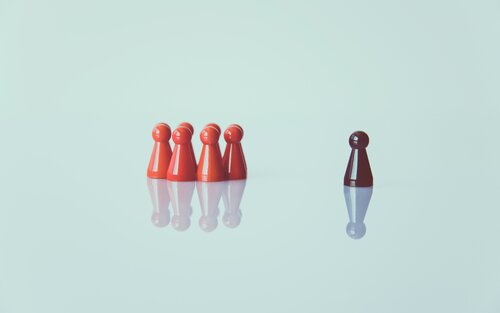How Friends and Family Can Prevent Disability Stigmatization
Disability stigmatization is a negative set of beliefs about persons with a disability. This can include social avoidance, stereotyping, discrimination, and can even lead to violence. Stigmatizing disability can cause undue stress and hardships for persons with a disability, and therefore must be fought to be removed. While stigmatization is a larger societal problem that must be dealt with, there are also ways to deal with stigma on a personal level.

(MarkusSpiske/Unsplash.com)
Recognizing and Countering Stigma
In some cases, a lack of understanding about disability is the cause of stigmatization. Therefore, a good place to start is by taking the time to educate yourself about different types of disabilities and the specific type of disability of a friend or loved one. With a proper understanding of disability, you will be able to recognize what is a fact, and what is a harmful stereotype. This knowledge will also allow you to inform others of their wrongdoing when you notice stigmatization, so that they may be educated as well, and stigma can be reduced in society.
In addition to educating yourself and others, it is important to be supportive of persons with disabilities. All people are deserving of dignity and respect, and a way to ensure that you are not stigmatizing anyone is to treat others how you would like to be treated. Reach out to people in your life who have a disability to ask them about their experiences, so that you can properly understand their needs and support them. Educating yourself and putting in the effort to support persons with disabilities will allow you to become more inclusive on a personal level, and could even lead to a more inclusive society.

“Rising Above Mental Health Challenges & Stigma”
At eighteen years old, Sitawa Wafula was a victim of sexual assault. She experienced significant and negative effects on her mental health and suffered from depression as a result of it. She found it hard to keep a job due to stigmatization in the workplace as a result of her epilepsy and mental health issues. However, this experience, combined with her passion, led to her desire to help others facing stigmatization. She began working to ensure that all Kenyans have the chance to access proper support and information on mental health, and launched the organization Mind My Funk.
She is now an award-winning mental health and epilepsy campaigner. She has a certificate in mental health advocacy, sits on Kenya’s Mental Health policy review committee, and serves as the Assistant Secretary in the National Epilepsy Coordination Committee. You can check out her website where she shares her experiences at http://sitawa.blogspot.com and watch her full video called “Rising Above Mental Health Challenges & Stigma” at the link below!
https://www.youtube.com/watch?v=h7ln6oS9gug
